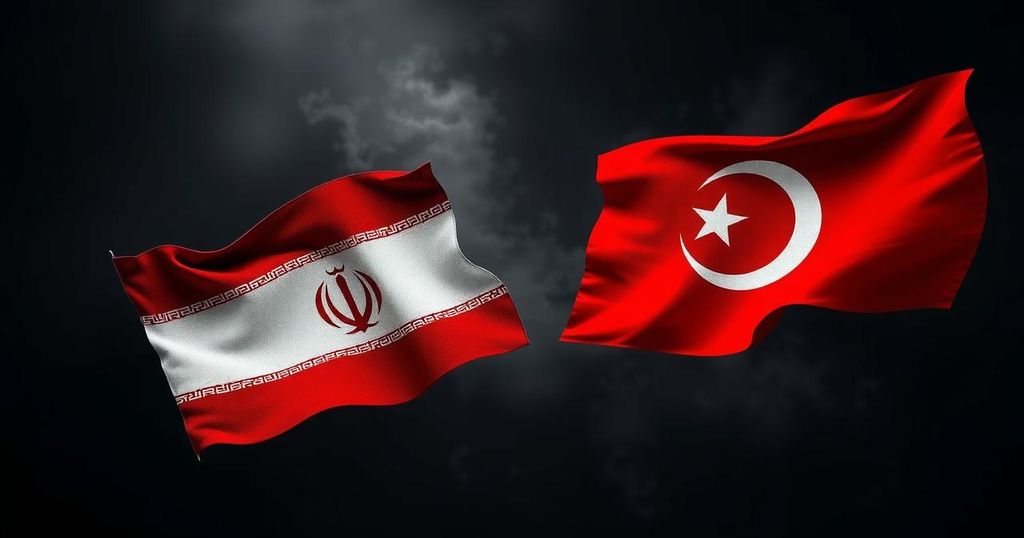In the aftermath of Yahya Sinwar’s death, Iranian Foreign Minister Abbas Araghchi traveled to Turkey to strengthen ties, focusing on support for Hamas and Hezbollah against Israel. His visit, part of a larger regional tour, highlights shared concerns over regional conflicts and reflects a growing partnership between Iran and Turkey, despite their historical differences. Both nations seek to establish a united front in response to Israeli actions, with increasing diplomatic engagement evident in their discussions.
Following the death of Hamas leader Yahya Sinwar, Iranian Foreign Minister Abbas Araghchi embarked on a visit to Turkey as part of a broader regional tour aimed at solidifying Iran’s influence in the Middle East. This journey, which included stops in several countries such as Lebanon, Syria, and Saudi Arabia, underscores the growing strategic partnership between Iran and Turkey, particularly in their common support for Hamas and Hezbollah against Israel. During his visit, Araghchi emphasized a shared concern over regional hostilities that potentially threaten stability, particularly reflecting on the conflicts arising in Gaza and Lebanon. He articulated this viewpoint while also addressing a regional conference held in the South Caucasus. The Foreign Minister’s discourse highlighted Iran’s intent to foster a collaborative stance with Turkey against perceived aggressions from Israel. It is noteworthy that Iranian state media reported that Araghchi’s discussions in Istanbul were timed deliberately within the context of his extensive diplomatic engagements, with a focus on articulating a united front against Israel’s actions that are seen as exacerbating tensions in the region. Moreover, Iran’s relationship with Turkey has notably strengthened over the past decade. Both nations share common interests, including their cordial ties with Qatar, which plays host to Hamas. Additionally, collaborative dialogues between Turkey and Iran extend beyond the Hamas-Israel conflict, encompassing discussions regarding the geopolitical dynamics among Azerbaijan, Armenia, and Russia, where each country maintains contrasting allegiances. Furthermore, the assertive rhetoric from Turkish officials regarding the conflict with Israel has intensified in recent years, with Turkish President Recep Tayyip Erdoğan vocally criticizing Israeli policies and actions in the region, thereby reinforcing Turkey’s role as a key player alongside Iran in the ongoing conflicts.
The topic of Iranian and Turkish relations has garnered significant attention amidst the backdrop of Middle Eastern geopolitics, particularly following the recent escalations in the region. Iran’s Foreign Minister’s visit to Turkey signifies both nations’ intent to bolster their alliances and combat perceived threats from Israel, especially after the death of a prominent Hamas leader. The historical context of their relationship reveals a complex landscape where both nations, despite divergent viewpoints in other areas, unite over shared strategic interests related to key militant groups like Hamas and Hezbollah. Additionally, the ongoing conflicts involving Azerbaijan and Armenia add further layers to their diplomatic interactions, showcasing the intricate web of alliances and tensions in the region.
In conclusion, the recent developments following the death of Yahya Sinwar mark a pivotal moment for Iran-Turkey relations as both nations actively seek to enhance their support for Hamas and Hezbollah while opposing Israel. Their collaborative approach, notably during Araghchi’s recent trip to Turkey, illustrates a concerted effort to forge a unified stance against perceived threats to regional stability. The evolving dynamics surrounding other regional conflicts, particularly with Azerbaijan and Armenia, further emphasize the complexity of alliances in the area. Overall, the strengthening ties between Iran and Turkey reflect a strategic partnership that could significantly shape the future landscape of Middle Eastern geopolitics.
Original Source: www.jpost.com







